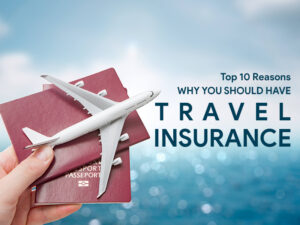Insurance is a financial arrangement in which individuals or entities receive protection or compensation against potential future risks or losses. It works on the principle of risk pooling, where many people pay small, regular premiums into a fund. When a covered event, such as an accident, illness, or damage, occurs, the insurer pays out claims to those affected, helping them recover financially.
There are various types of insurance, including:
- Health Insurance: Covers medical expenses such as doctor visits, hospital stays, and surgeries.
- Auto Insurance: Provides financial protection for damage to vehicles or injury in car accidents.
- Life Insurance: Pays out a sum of money to beneficiaries upon the policyholder’s death.
- Homeowners or Property Insurance: Protects homes and property from damage or theft.
- Disability Insurance: Offers income protection if a person becomes unable to work due to illness or injury.
- Travel Insurance: Covers costs related to travel disruptions, accidents, or medical emergencies during trips.
Insurance policies typically outline the terms of coverage, including what risks are covered, the cost of premiums, and conditions for making a claim. By providing financial security, insurance helps reduce uncertainty and manage the impact of unexpected events
Travel Insurance
Travel insurance is a type of insurance designed to protect travelers from financial losses and unexpected events that may occur before or during a trip. It provides coverage for a wide range of travel-related risks and emergencies, such as trip cancellations, medical expenses, lost or delayed luggage, and travel delays.
Key coverage areas in travel insurance typically include:
- Trip Cancellation or Interruption: Reimbursement for prepaid travel costs if the trip is canceled or cut short due to covered reasons, such as illness, injury, or death of a family member.
- Medical Expenses: Coverage for emergency medical treatment if the traveler becomes ill or injured while abroad. This can include hospitalization, doctor visits, and emergency medical evacuation.
- Lost or Delayed Baggage: Compensation for luggage that is lost, stolen, or delayed during travel.
- Travel Delays: Compensation for additional expenses if a trip is delayed due to reasons like bad weather, mechanical issues, or strikes.
- Emergency Evacuation and Repatriation: Coverage for transportation costs if a traveler needs to be evacuated due to a medical emergency or repatriated in the case of death.
- Accidental Death and Dismemberment (AD&D): Pays benefits to beneficiaries if the insured person dies or loses a limb in an accident while traveling.
Travel insurance policies can vary in terms of coverage and exclusions, so it’s important to carefully review the policy before purchasing. It offers peace of mind to travelers by minimizing financial risks and providing assistance during unforeseen travel-related events

Auto Insurance
Auto insurance is a type of insurance policy that provides financial protection for vehicle owners in case of accidents, theft, or damage involving their car. It also covers liability for any injuries or damage caused to other people or property while driving. Auto insurance is mandatory in many countries and helps safeguard both drivers and others on the road.
There are several types of coverage typically included in auto insurance policies:
- Liability Coverage: This covers the cost of damages or injuries you cause to other people or their property in an accident. It’s usually required by law in most regions.
- Collision Coverage: Pays for repairs or replacement of your car if it’s damaged in a collision with another vehicle or object, regardless of who is at fault.
- Comprehensive Coverage: Protects against non-collision-related incidents, such as theft, vandalism, fire, natural disasters, or hitting an animal.
- Personal Injury Protection (PIP) or Medical Payments: Covers medical expenses for you and your passengers if you’re injured in an accident, regardless of fault.
- Uninsured/Underinsured Motorist Coverage: Provides protection if you’re in an accident with a driver who doesn’t have insurance or lacks enough coverage to pay for your damages.
- Roadside Assistance: Optional coverage that offers help if your car breaks down, such as towing services, battery jumps, or tire changes.
- Rental Reimbursement: Covers the cost of a rental car while your vehicle is being repaired after an accident.
Maintaining adequate coverage ensures that drivers are protected from costly repairs, medical bills, and legal expenses in case of an accident or other incidents

conclusion
In conclusion, insurance plays a crucial role in providing financial protection and peace of mind against unforeseen risks and events. Whether it’s travel, auto, health, or other forms of insurance, each policy serves to mitigate potential financial losses and ensure that individuals and businesses can recover from accidents, illnesses, or damage. Understanding the types of coverage available and choosing the right insurance for your needs is essential for managing risk and securing a stable future.
Being well-insured helps individuals face life’s uncertainties with greater confidence, knowing they have a safety net in place
